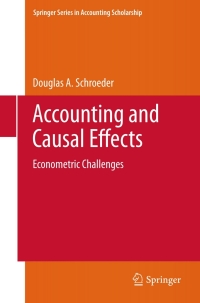Answered step by step
Verified Expert Solution
Question
1 Approved Answer
If you could double check the work is right too please 1,500 Francis Company, Inc. December 31, 2017 Unadjusted Trial balance Cash 45,000 Accounts Receivable





If you could double check the work is right too please
1,500 Francis Company, Inc. December 31, 2017 Unadjusted Trial balance Cash 45,000 Accounts Receivable 23,000 Allowance for Doubtful Accounts Short Term Note Receivable 84,000 Interest Receivable 0 Supplies 5,000 Prepaid Insurance 40,000 Inventory 12,000 Vehicle 16,000 Equipment 75,000 Accumulated Depreciation Accounts Payable Unearned Revenue Wages Payable Long-Term Notes Payable Common Stock Retained Earnings (1/1/2017) Dividends 3,000 Sales Sales Returns & Allowances 2,300 Sales Discounts 1,900 Cost of Goods Sold 45,500 Delivery Expense 2,000 Depreciation Expense 16,000 Bad Debt Expense Rent Expense 98,300 Insurance Expense 40,000 Wages Expense 200,000 Supplies Expense 15,500 Interest Revenue Loss on Disposal Interest Expense 6,500 Income Tax Expense 36,000 Total 767,000 42,000 14,000 18,000 7.000 65,000 106,000 2,500 511,000 O 767,000 1. On Dec. 31, 2017 merchandise was sold on account for $16,500 with a cost of $5,500 terms 3/10 net 30. Accounts receivable 16500 Sales 16500 5500 Cost of goods sold Inventory 5500 2. The company issued a 6 month, 12% interest note short-term note for the amount listed on the unadjusted trial balance on Oct. 1, 2017. All interest and principal will be paid back at the end of the 6 months. Write the adjusting journal entry required for its financial statements as of Dec. 31, 2017. Interest receivable 2520 Interest revenue 2520 3. Uncollectable Accounts Receivables of $1,600 need to be written off for the year ended + 2017. Allowance for Doubtful Accounts 1600 Accounts Receivable 1600 4. Management estimates that of the remaining accounts receivable balance, $2,000 will be uncollectible. Record the adjustment based on this information. Hint: Use the AFDA balance AFTER the above write off during 2017. Use an AFDA T-account! Bad debts expense 2,100 Allowance for doubtful 2,100 5. A piece of equipment was retired on Dec. 31, 2017. The equipment originally cost $34,000 and has related A/D of $24,000 as of Jan. 1, 2017. Additional depreciation of $3,000 needs to be recorded on this piece of equipment at Dec. 31, 2017. Update the depreciation below (#5). Then record the retirement (#6). Depreciation Expense 3,000 Accumulated Depreciation 3,000 6. Record the retirement of the equipment (from #5) including the gain or loss. Accumulated Depreciation 27,000 Loss on Disposal 7,000 Equipment 34,000 Beginning Balance Sales Accounts Receivable 23,000 Allowace for D.A 16,500 Ending Balance 1,600 37,900 Sales Beginning Balance 5,27,500 Accounts Receivable 5,11,000 16,500 Ending Balance Beginning Balance Inventory Cost of Goods Sold 45,5001 5,500 Ending Balance 51,000 Beginning Balance Inventory 12,000 Cost of Goods Sold Ending Balance 5,500 6,500 Interest Receivable Beginning Balance Interest Revenue 2,520 Ending Balance 2,520 Interest Revenue Beginning Balance 2,520 Interest Receivable Ending Balance 2,520 Accounts Receivable Ending Balance Allowance for Doubtful Accounts 1,600 Beginning Balance 2,000 Bad Debt Expense 1,500 2,100 Bad Debt Expense Beginning Balance Allowance for D.A 2,100 Ending Balance 2,100 Beginning Balance Accum. Depreciation Depreciation Expense 16,000 3,000 Ending Balance 19,000 Beginning Balance Equipment 75,000 Accum. Depreciation Cash (Sale) Loss on Disposal Ending Balance 27,000 5,000 2,000 41,000 Equipment Ending Balance Accumulated Depreciation 27,000 Beginning Balance 18,000 Depreciation 42,000 3,000 Beginning Balance Equipment Cash 45,000 5,000 Ending Balance 50,000 Loss on Disposal Beginning Balance Equipment 2,000 Ending Balance 2,000 Credit ($) 2.000 Adjusted Trail Balance December 31, 2017 Particulars Debit ($) Cash 45,000 Accounts receivable 37,900 Allowance for Doubtful Accounts Short term notes receivable 84,000 Interest receivable Supplies 5,000 Prepaid insurance 40,000 Inventory 6,500 Vehicle 16,000 Equiment 41,000 Accumulated Depreciation Accounts payable Unearned revenue Wages payable Long-term Notes payable Common stock Retained earnings Dividends Sales Sales return and allowance 2,300 Sales discount 1.900 Cost of goods sold 51,000 Delivery expenses 2.000 Depreciation Expense 19,000 Bad debts expense 2.100 Rent expense 98.300 Insurance expense 40,000 Wages expense 200,000 Supplies expense 15,500 Interest revenue Loss on Disposal 7,000 Interest expense 8.450 Income tax expense 36.000 Interest payable 18.000 14,000 18,000 7,000 65,000 106,000 2,500 3.000 527.500 1,950 Total 761,950 761,950 The company made a loan to Jackson Co. in the form of a short-term note. Write the adjusting journal entry for the accrual of interest from Oct. 1, 2017 to Dec. 31, 2017. In Blank [1] enter the account to be debited. In Blank [2] enter the amount to be debited. In Blank [3] enter the account to be credited. In Blank [4] enter the amount to be credited. Dr. [1]__ [2]$_. Cr. [3]___________ [4]$__ AL Uncollectible Accounts Receivable of $1,600 needs to be written off for the year ended 2017. In Blank [1] enter the account to be debited. In Blank [2] enter the amount to be debited. In Blank [3] enter the account to be credited. In Blank [4] enter the amount to be credited. Dr. [1] ----- [2]$_ Cr. [3]______________ [4]$__ Management estimates that of the remaining accounts receivable balance, $2,000 will be uncollectible. Record the adjusting journal entry based on this information. In Blank [1] enter the account to be debited. In Blank [2] enter the amount to be debited. In Blank [3] enter the account to be credited. In Blank [4] enter the amount to be credited. Dr. [1] ----------- ZIP_ --------- [2]$_ [4]$__ Cr. [3]Step by Step Solution
There are 3 Steps involved in it
Step: 1

Get Instant Access to Expert-Tailored Solutions
See step-by-step solutions with expert insights and AI powered tools for academic success
Step: 2

Step: 3

Ace Your Homework with AI
Get the answers you need in no time with our AI-driven, step-by-step assistance
Get Started


